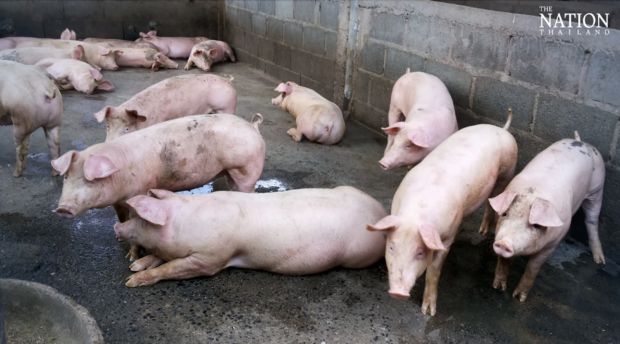
| File photo
CEBU CITY, Philippines – A group of pork producers in the Philippines has urged the national government to take a second look at some of the measures that they introduced in managing the African Swine Fever (ASF) here.
Otherwise, the country’s hog industry may be at peril.
The Pork Producers Federation of the Phils, Inc. (ProPork) called the Bureau of Animal Industry (BAI) of the Department of Agriculture (DA) to reconsider culling as one of the methods in curbing the spread of ASF.
In a statement, Rolando Tambago, president of ProPork, said they lost at least 5 million pigs not due to the infection itself but to BAI’s protocols, particularly the “indiscriminate culling of healthy pigs,” leading them to question their effectiveness in combatting the deadly swine disease.
Tambago described culling as a counterproductive measure that can adversely impact food security.
He added that it may even cause the inadvertent spread of the disease to other areas if growers start to sell their hogs or smuggle the sick ones.
“They’ve been doing this protocol for more than three years, yet the disease continues to spread,” said Tambago.
If regulators continue implementing these measures, ProPork warned of negative consequences for the hog industry. These included a “possible massive supply shortage of pork causing spikes in retail prices within two to three months from now.”
ProPork’s statement came after the Cebu Provincial Government decided to deviate from BAI’s policies in dealing with the ASF situation here, a move which they welcomed and commended.
“We laud the move of Gov. Gwen Garcia of Cebu to seek alternative approach to avoid seeing the industry shrinking more,” Tambago said.
The pork producer group also agreed with Garcia’s position that culling may only be used as a justification to encourage the entry of more imported pork.
“If we fail to protect the remaining half of our local industry, there is high possibility that we will be fully reliant on imported pork and consumers will eventually suffer due to lack of food security,” he explained.
Last March 1, Cebu province recorded its first case of the ASF. Samples of slaughtered pigs in Carcar City were found to have been infected with the highly contagious infection.
A few weeks later, authorities detected the disease in five more areas, including the capital Cebu City.
The Capitol, however, disagreed with the policies and other biosecurity measures from BAI, saying it puts hog raisers and farmers at a disadvantage, among other reasons.
Cebu is considered one of the country’s largest pork producers, with its hog industry valued at approximately P11 billion.
RELATED STORIES
ASF detected in 5 more areas in Cebu
Cebu province implements own anti-ASF measures
Bohol bans pork, pork products from Cebu, Cebu City due to ASF

